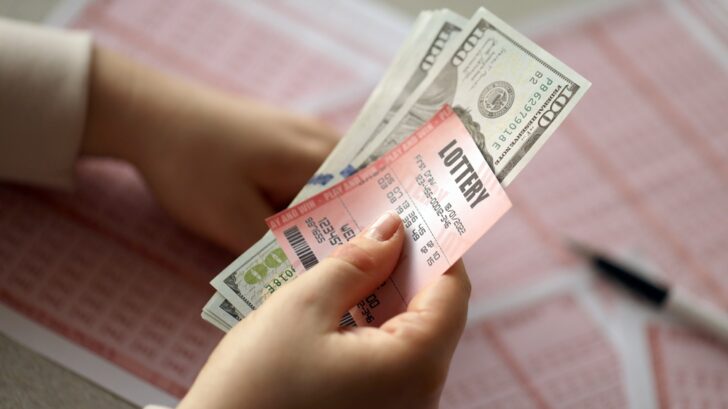We often think many events are unlikely to happen but we still witness them around us all the time. Then we wonder why this has happened with such a low probability. Yes, we think that in mathematical or statistical terms. Probability is a chance or percentage of achieving or losing something against something. Why something happens that is highly unlikely is governed actually by mathematical law of truly large numbers and law of combinations. These laws explain why something happened.
Lottery similarly is a game of chance or probability, you might say. Many people say that winning a lottery is more of a chance or a coincidence. It depends on a sheer luck factor that you win a lottery. There is no one who can say that he/she would win the lottery for sure. But studies and evidence go against this.
In a study, statistician performed various analyses which showed that the events that are appearing highly unlikely were actually the most expected ones. For instance, a woman won a New Jersey Lottery 2 times in just four months in a row which was reported as a surprising coincidence which beat the odds of 1 in 17 trillion.
But when it was deeply analyzed, it was found that the chances of winning the lottery by someone somewhere in the USA were 1 in 30. This is referred to a ‘Law of very large numbers’ in statistics which means that if a sample is very large, any unusual thing can happen. The findings of the study were later published in the December issue of Journal of American Statistical Association.
Similarly, if we take the example of the lottery it is governed by the law of very large numbers as well as a law of combinations. There are many lotteries in the world in which seemingly impossible event actually is quite probable. For instance, in 2009 Bulgarian lottery-selected numbers 4, 15, 23, 24, 35, 42 randomly. The surprising thing was the same lottery selected same winning numbers in the next week.
This created an outrage among people and media that lottery had been fixed. However, it was rather an amazing coincidence which was just another example of the Principle of Improbability that is a type of the Law of Truly large numbers enhanced by the Law of Combinations.
Another example is of MIT student winning a Massachusetts’ Cash WinFall by using his capability of making precise calculations. The Massachusetts’ Cash WinFall jackpot was divided into smaller cash prizes if there was no big winner. He discovered the quirk that by buying $100,000 worth of tickets in the lottery during those days would guarantee his success. Again, that applied the law of truly large numbers with the law of combinations.
This means that it is not impossible to use calculations and mathematics to win a lottery. People who do not possess the capability of making calculations and using mathematics or statistics fail to realise this and they consider it as a coincidence and the result of luck.

